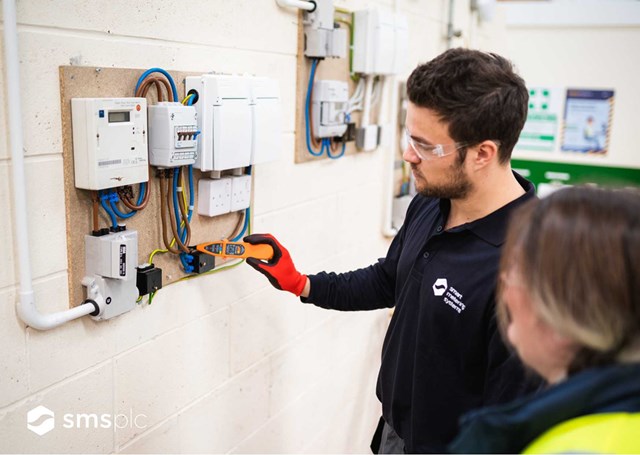
How to save energy on heating your business
Heating and hot water are likely the biggest source of your business’s greenhouse gas emissions.
If your business is working to cut its energy consumption and carbon footprint, heating and hot water may be the sticking point.
The Institute of Hospitality estimates that heating and hot water can account for more than 60% of energy used in a hotel, and this is similar for other sectors such as leisure and health. If you are serious about reducing the carbon impact of your business, it is crucial to look at emissions from heating. We share a few ways to do so here.
Understand your energy habits with a smart meter

If you haven’t already had one installed, getting a free smart meter is a good place to get started with energy saving.
A smart meter will make it easier for you to track how much electricity and gas you are using every day – helping you to see in real time the cost of heating your business.
Find out how to book in your business smart meter installation here.
Improve the insulation at your business premises
There’s little point spending money to heat your business for it just to disappear out through the walls or ceiling. Ensuring your business is well insulated will make it a more pleasant place to work, cut your carbon footprint, and save you money on your energy bills every year. Other things to think about include updating windows and doors to leak less heat
Many businesses need cooling as well as heating, and these can work against each other if they are not kept sufficiently separate. If there is an area of the site where the priority is to keep machinery from overheating, ensure this is insulated from other areas so that the cooling fans aren’t working to chill air that you’ve paid to heat (and vice-versa). If you are a retailer with a fridge section, ensure that there are well-sealed doors on the chiller cabinets so that they don’t pump cold air into the main store area and force the heating system to work unnecessarily hard.
There are often free surveys and grants available to businesses that want to be greener – so you may not need to pay the full cost of insulating your business.
Replace your gas boiler with a heat pump
If your business is heated by a conventional boiler, it will be running on natural gas, a fossil fuel that generates greenhouse gas emissions. Heat pumps operate in a completely different way, using a small amount of electricity to transfer heat from the air to your heating system.
Try different ways of working
Just making small tweaks to the way your sites are used can achieve significant savings in your energy use.
Turn down the thermostat. The Energy Saving Trust estimates that a three-bedroom semi-detached home could save £55 and 300kg of carbon emissions every year by turning the thermostat down one degree; obviously these savings will be greater for larger sites.
But remember that guidance for workplaces suggests a minimum temperature of 16°C, or 13°C if employees are doing physical work.
Upgrade the controls. Heating controls and thermostats have become more sophisticated in recent years, so upgrading these could help to save energy even without making any changes to the heating system itself.
Evaluate site usage. You may achieve even bigger savings by assessing how well your heating programme matches use of the site. The patterns of occupancy could well have changed since you last checked: are any parts of the site being heated while empty?
Optimise working patterns. Could you optimise your employees’ working patterns so that you need to spend less time heating the site? At Good Energy, the majority of our staff work in a hybrid format with just one or two days in the office each week. There is evidence that it improves both productivity and job satisfaction.

Switch to green gas – but avoid the greenwash
If moving away from a conventional gas boiler isn’t a practical option for your business, you can still cut your impact on the climate by switching to a green gas tariff. At present, the mix in the UK grid is only about 1% green gas (biomethane) which means that most suppliers offering a green gas tariff have to use offsetting. But the type of offsetting is crucial. Check out our three-point checklist for advice on finding a genuinely green gas supplier.
Good Energy is completely upfront about the proportion of UK-sourced biomethane we buy (10%) and how our offsetting works (by investing in Gold standard projects that increase access to renewable energy around the globe).
This commitment to transparency means that our business customers can show stakeholders (customers, investors, employees) exactly what they are doing about their climate impact.


